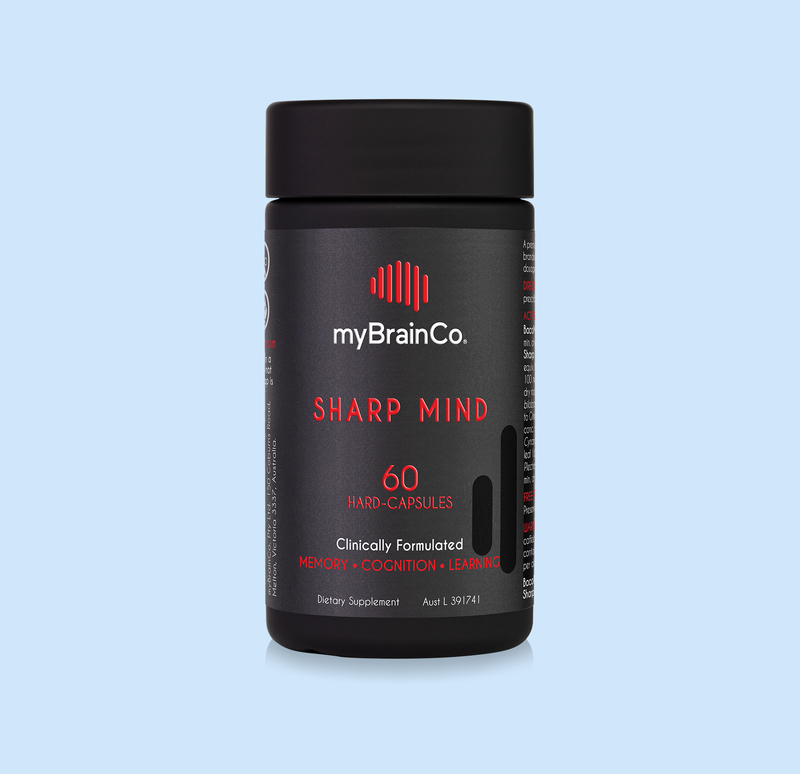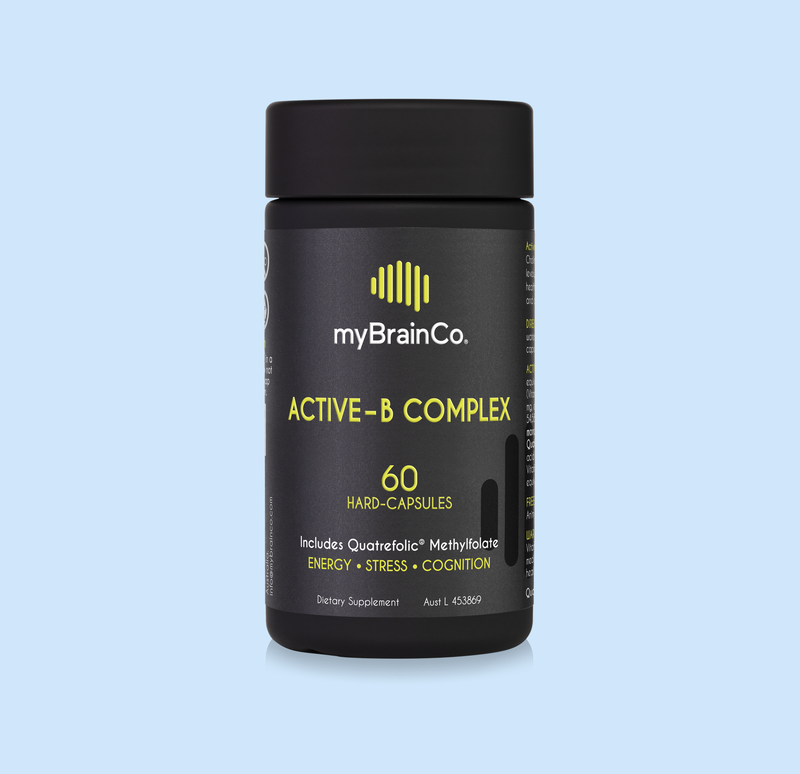We all know the role of fibre as a beneficial prebiotic that fuels and enhances gut microbes. But did you know certain vitamins might do that too?
New research into B vitamins suggests a surprising new role: these nutrients may act as gut ecosystem modulators.
That’s right—beyond supporting our own health, B vitamins might also be nourishing our microbes, shaping which species grow and thrive in the gut.
It’s a new way of thinking. And it could reshape how we apply supplements and food to support not just our bodies, but our internal microbial terrain.
B Vitamins: Not Just for Humans
B vitamins are water-soluble nutrients essential for everything from energy production to neurotransmitter synthesis. We typically think of them as "for us"—as tools for boosting metabolism, brain function, and energy.
But here's the twist: our gut bacteria use B vitamins too.
In fact, many microbes in the gut can produce B vitamins themselves. Others depend on them. Some even share them with their microbial neighbours through a fascinating process called cross-feeding—an exchange that helps shape the microbiome's structure, resilience, and function.
This microbial sharing economy means that B vitamins don’t just act in isolation—they help build a healthier, more balanced ecosystem inside us.
How Are B Vitamins Influencing Microbes?
Traditionally, prebiotics are defined as non-digestible food ingredients (like fibres and resistant starches) that support the growth of beneficial bacteria. But new evidence suggests we might need to broaden that definition.
While B vitamins aren’t carbohydrates, they can exhibit prebiotic-like effects—especially when consumed in higher doses, through special delivery formats, or via probiotic strains that produce them.
When these vitamins reach the colon, they appear to modulate the microbiome in powerful ways. They may act as selective growth factors for vitamin-dependent microbes, help support microbial diversity, and encourage the production of anti-inflammatory compounds like short-chain fatty acids.
In this way, B vitamins may be functioning as micronutrient-based prebiotics—not feeding microbes in the conventional sense, but supporting them through biochemical cues, redox modulation, and nutrient-sharing dynamics.
What the Data Says
Research shows that many gut microbes (about 40–65%) have the ability to make B vitamins. However, not all of them produce enough, and some depend on other microbes to share these vitamins through a process called cross-feeding.
In fact, one study found that in some people, up to 86% of the body’s vitamin B6 needs could come from the bacteria in the gut. However, this varies greatly from person to person, depending on the makeup of their microbiome, their diet, and the overall health of their gut.
What does this mean? Supplementing with B vitamins might help support the microbiome, especially if it’s struggling due to factors like inflammation, regular antibiotic use, or poor dietary habits. It can also encourage the growth of beneficial microbes that depend on B vitamins or that don’t produce enough on their own.
Ultimately, there’s a feedback loop: your gut bacteria make vitamins for you, and by taking B vitamins through food or supplements, you help support your microbiome. It’s a nutrient-sharing partnership—and it’s an area of research that’s still growing.
The B Vitamin - Gut Connection
Emerging research shows that B vitamins might influence the gut microbiome in much the same way as traditional prebiotics—but through a different mechanism.
When taken in high enough doses, delivered through special formulations, or produced by probiotic strains, B vitamins can reach the lower gut. There, they may help reshape the microbial community in several important ways:
-
-
Boosting microbial diversity, which is linked to better gut and overall health
-
Feeding beneficial microbes like Faecalibacterium prausnitzii, Roseburia, and Bacteroides thetaiotaomicron
-
Enhancing the production of short-chain fatty acids like butyrate, which support gut barrier integrity and reduce inflammation
-
Lowering gut redox potential, creating a friendlier environment for beneficial anaerobes
-
Reducing levels of harmful bacteria that thrive in inflamed or imbalanced guts
-
Improving the gut lining’s function, which may help prevent leaky gut and support immune regulation
-
Think of it this way: when B vitamins make it to the distal gut, they may act as microbial signals, fuels, and ecosystem modulators—all rolled into one.
How Do B Vitamins Fit Into Gut Healing?
They don’t replace fibre—but they may enhance what fibre and probiotics are already doing.
Rather than simply feeding the microbes, B vitamins appear to:
-
-
Support cross-feeding between microbial species
-
Improve community resilience
-
Reduce microbial stress, particularly in low-oxygen environments like the colon
-
As such, they could become a valuable companion to other gut-healing strategies like:
-
-
Prebiotic fibres
-
Resistant starches
-
Polyphenols
-
Probiotics
-
Gut-targeted nutrients (like glutamine or zinc)
-
The Bottom Line: Should You Supplement?
If you’re supporting your gut health or you’re looking to support your brain, immune, or energy function, B complex vitamins might deserve a closer look.
Here are some tips:
-
-
Choose a comprehensive B complex that uses activated, aka bioavailable forms (like methylfolate (folate), methylcobalamin (B12), or P5P (vitamin B6)
-
Dose matters—according to the research, some microbial effects appear only at higher levels (e.g. >30mg riboflavin)
-
Combine with prebiotic foods and fibres or probiotics to enhance microbial diversity
-
Be consistent—building up your ecosystem takes time
-
Science is always evolving, but one thing is clear: B vitamins can do more than support our energy and metabolic capacity. They now appear to play a powerful role in shaping our internal microbial world.
As scientific exploration continues to deepen our understanding of the gut-brain-immune connection, B vitamins may become an essential player when it comes to building a resilient, balanced microbiome.
REFERENCES
Bedani R,et al. B-Group Vitamins as Potential Prebiotic Candidates: Their Effects on the Human Gut Microbiome. J Nutr. 2024 Feb;154(2):341-353.



